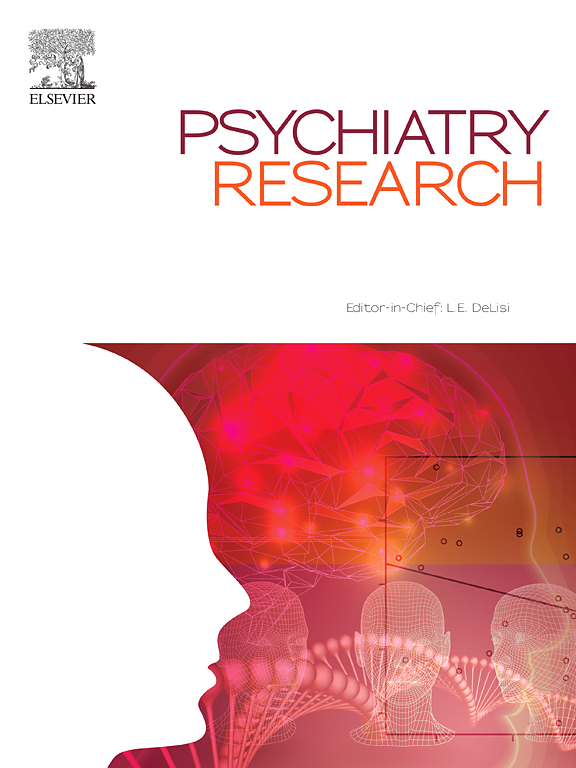A systematic review on the role of EEG and fMRI-Neurofeedback training in the treatment of substance use disorders and behavioral addiction
IF 3.9
2区 医学
Q1 PSYCHIATRY
引用次数: 0
Abstract
Neurofeedback (NF), a form of biofeedback, is used to enhance the self-regulation of brain functions by assessing brain activity and delivering feedback signals to ameliorate emotional attributes, cognitive functions, and behaviors. Despite the potential role of NF in substance use disorder (SUD) treatment, a number of gaps such as variations in NF methods persist. This study aims to address such gaps and present comprehensive insights into EEG and fMRI-NF applications in SUD management. This study has been conducted according to the PRISMA guidelines. The search spanned four major databases: Web of Science, Scopus, PubMed, and Embase. The search terms encompassed “Neurofeedback” OR “EEG biofeedback” OR “neurotherapy” OR “Functional near-infrared spectroscopy Neurofeedback” OR “fNIRS-Neurofeedback” AND addiction OR Drug OR “substance dependence” OR “substance abuse” OR Heroin OR Opioid OR Cannabis OR Marihuana OR Cocaine OR Crack OR Amphetamine OR Methamphetamine OR Hallucinogen. Our systematic review yielded 32 articles, including 18 EEG-, 11 fMRI-neurofeedback, and 3 fNIRS-neurofeedback studies. The primary outcome was reduced drug craving and some aspects of mental health and EEG-NF studies consistently indicated a preference for the alpha-theta protocol, whereas the high heterogeneity among fMRI-NF protocols limited direct comparisons. In conclusion, the results of this systematic review indicate that NF shows promise as an adjunctive intervention for treating SUD.
EEG和fmri神经反馈训练在药物使用障碍和行为成瘾治疗中的作用的系统综述
神经反馈(NF)是生物反馈的一种形式,通过评估大脑活动和传递反馈信号来改善情绪属性、认知功能和行为,从而增强大脑功能的自我调节。尽管NF在物质使用障碍(SUD)治疗中的潜在作用,但NF方法的差异等许多差距仍然存在。本研究旨在解决这些空白,并对EEG和fMRI-NF在SUD管理中的应用提供全面的见解。本研究是根据PRISMA指南进行的。搜索跨越了四个主要数据库:Web of Science、Scopus、PubMed和Embase。搜索词包括“神经反馈”或“脑电图生物反馈”或“神经治疗”或“功能性近红外光谱神经反馈”或“fnirs -神经反馈”以及成瘾或药物或“物质依赖”或“药物滥用”或海洛因或阿片类药物或大麻或大麻或可卡因或快克或安非他命或甲基苯丙胺或致幻剂。我们系统回顾了32篇文章,包括18篇EEG-, 11篇fmri -神经反馈研究和3篇fnirs -神经反馈研究。主要结果是减少了对药物的渴望,心理健康和脑电图- nf研究的某些方面一致表明对α - θ方案的偏好,而fMRI-NF方案之间的高度异质性限制了直接比较。总之,本系统综述的结果表明,NF有望作为治疗SUD的辅助干预措施。
本文章由计算机程序翻译,如有差异,请以英文原文为准。
求助全文
约1分钟内获得全文
求助全文
来源期刊

Psychiatry Research
医学-精神病学
CiteScore
17.40
自引率
1.80%
发文量
527
审稿时长
57 days
期刊介绍:
Psychiatry Research offers swift publication of comprehensive research reports and reviews within the field of psychiatry.
The scope of the journal encompasses:
Biochemical, physiological, neuroanatomic, genetic, neurocognitive, and psychosocial determinants of psychiatric disorders.
Diagnostic assessments of psychiatric disorders.
Evaluations that pursue hypotheses about the cause or causes of psychiatric diseases.
Evaluations of pharmacologic and non-pharmacologic psychiatric treatments.
Basic neuroscience studies related to animal or neurochemical models for psychiatric disorders.
Methodological advances, such as instrumentation, clinical scales, and assays directly applicable to psychiatric research.
 求助内容:
求助内容: 应助结果提醒方式:
应助结果提醒方式:


